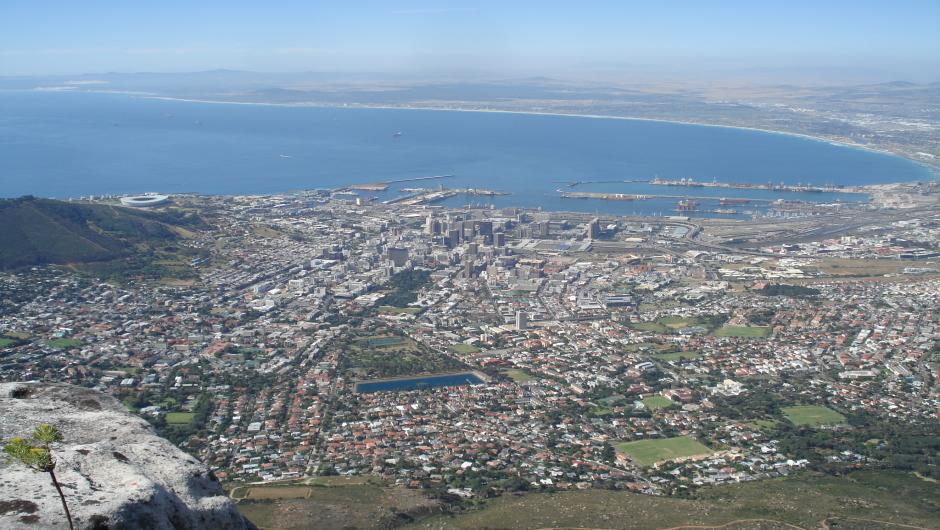Good governance
The executive committee of Liberal International met in Johannesburg, South Africa on 28/29 October 2017. Professor Karl-Heinz Paqué, deputy chairman of the Foundation and LI vice-president, attended the event, which was held under the banner of “good governance”. He found that this theme was anything but theoretical: a look around revealed the impact of bad governance everywhere. Bad governance hinders the people of the great “rainbow nation”, as South Africans refer to their country, from making the best use of their opportunities. What they need is “Freedom You Can Use”, the slogan of the Democratic Alliance (DA), South Africa’s liberal opposition.
“How to Steal a City” is the provocative title of a bestseller by Chrispian Olver which I bought at the airport book store on the trip back from Johannesburg. The book’s subtitle is “An Inside Account”, and that is exactly what it is: the author worked for many years in the city administration of Nelson Mandela Bay (Port Elizabeth) when it was still under the control of the African National Council. He found a gigantic, complex network of corruption and self-enrichment in this, one of the country’s main cities, which had been dominated by the ANC from the mid-1990s.
The book reads like a thriller, but is in fact a realistic account of the bitter reality faced not just by the residents of Port Elizabeth, but by people in other South African cities and across the world. Bad governance is not exclusive to developing countries and emerging markets, of course: it exists wherever lucrative tenders are awarded and a single political force manages to build a lasting, stable political network, thereby establishing a seemingly unbreakable stranglehold on power.
But maybe such strangleholds can be broken after all? Although South Africa continues to be dominated by the ANC, there are signs of change: at the local government elections in 2016, opposition forces led by the DA took over from the ANC. These leaders bear a tremendous responsibility: having promised good governance in their election campaigns, they now have to deliver. This means tenaciously fighting corruption, insisting that the rule of law be observed, ensuring that tender processes are fair and open, and establishing a competent and responsive administration.
It is a mammoth undertaking. But the liberal DA has already proved that it knows how to handle this challenge, both in Cape Town and in other municipalities in the Western Cape province, where it has been in government for a number of years. In these towns, the DA introduced striking improvements, news of which spread throughout the country and contributed to the 2016 election victories. The DA’s slogan, “Freedom You Can Use” became more than just an empty phrase – it was filled with meaning.
This is what needs to happen in Johannesburg too, a city which has for many years been at the forefront of the world’s corruption and crime rankings. Walking through Joburg (one of the resident’s nicknames for their city), the impact of bad governance is clearly visible: large numbers of abandoned high-rise buildings, “broken windows” without prospects. And in among the desolation, a largely poor, black population hoping and praying for “business, jobs and skills” to return to the inner city – along with a stimulating urban life rich in opportunities. For this to happen, there have to be systematic urban renewal programmes which make it attractive and enjoyable to live and work in the city centre. Joburg’s new city council is taking its task seriously, and there’s a palpable buzz throughout the city. The plans are ambitious and the time is short – residents tend to become impatient if they don’t see quick progress. But at least a start has been made.
What the DA is doing could become a model for Africa and throughout the world. One more reason for Liberal International to adopt its new Declaration on Better Governance in Johannesburg, following on from the comprehensive Liberal Manifesto adopted in Andorra in May. The new declaration summarises a broad list of demands in the fight against bad governance, where the state exists for the self-enrichment of powerful clans, families or parties. It makes freedom tangible: “Freedom You Can Use”, the best chance of a better future for all.

